
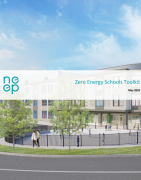
MA Zero Energy Schools Toolkit ( )
A school building is a centerpiece of a community where learning, work, and other important gatherings occur. The purpose of this toolkit is to help communities create learning environments that are healthy, productive, and energy efficient. Understanding that designing and constructing a new… Read more
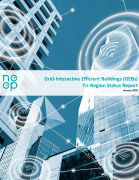
Grid-Interactive Efficient Buildings (GEBs) Tri-Region Status Report ( )
The energy industry in the United States is rapidly evolving – the installation of smaller generation plants is becoming a trend, renewable energy generation is expanding, coal-generated electric plants are being retired, and modern interconnected and energy-efficient technologies are being… Read more
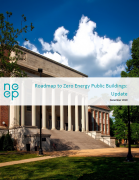
Roadmap to Zero Energy Public Buildings: Update ( )
Increasingly, states are recognizing the importance of transitioning to zero energy and carbon neutrality in order to address climate change. Nationally, the energy consumption and operations of buildings account for 40 percent of GHG emissions and energy use. NEEP is committed to assisting states… Read more

Green Zoning: Using Local Zoning to Achieve Community Energy Efficiency & Resiliency ( )
In many states around the country, the increasing efficiency required by building energy codes is one of the few ways to reduce building energy usage from one code cycle to the next. However, building energy codes are only updated every three years and sometimes take longer to be adopted at the… Read more

Building Decarbonization Public Policy Framework ( )
Decarbonizing our building stock requires a comprehensive set of actions, occurring in parallel and phased in over time, across different sectors and levels of government. NEEP's Building Decarbonization Public Policy Framework lays out the pathway. A successful transition to zero carbon [buildings… Read more

Variable Refrigerant Flow (VRF) Market Strategies Report ( )
Since 2013, NEEP has worked on a regional market transformation initiative to accelerate the market adoption of VRF technology in the Northeast region. The initiative collectively developed and recently updated the Northeast/Mid-Atlantic ASHP Market Transformation Strategies Report to provide a “… Read more
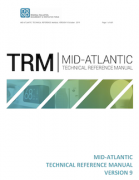
Mid-Atlantic Technical Reference Manual (TRM) V9 ( )
This update to the Technical Reference Manual is the outcome of a NEEP technical assistance project sponsored by Maryland, Delaware and the District of Columbia. The intent of the project was to develop and document in detail common assumptions for significant prescriptive residential and… Read more

Readiness for Advanced Measurement and Verification in the Northeast ( )
Northeast Energy Efficiency Partnerships (NEEP) has been tracking the evolution of the advanced measurement and verification (M&V) industry through projects and publications. As this is a fast-moving field, we continue to research new vendors, technologies, and services offered in advanced M… Read more
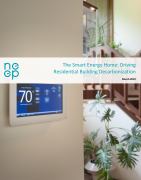
The Smart Energy Home: Driving Residential Decarbonization ( )
States, cities, and utilities across the region have made aggressive commitments to deep carbon reductions. In our 2018 Strategic Electrification Action Plan, NEEP found that significantly decarbonizing buildings to the necessary levels will require energy efficiency, a number of distributed energy… Read more
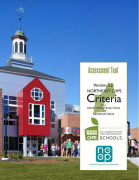
Northeast Collaborative for High Performance Schools Criteria (NE-CHPS) Version 3.2 ( )
The Northeast CHPS Verified Program (NE-CHPS) has been designed to provide guidance and verification for new school projects, renovations, and new schools on existing campuses to achieve high performance goals. NE-CHPS Version 4.0: This August, the Northeast Collaborative for High… Read more
